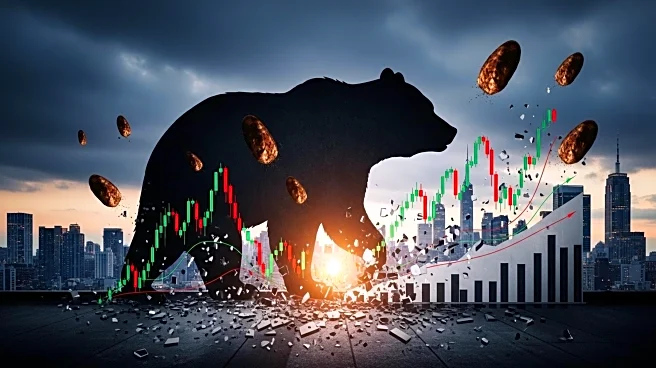What is the story about?
What's Happening?
U.S. stocks experienced significant declines on Friday following President Trump's threats to increase tariffs on Chinese imports. The Standard & Poor's 500 index fell 2.7%, marking its worst day since April, while the Dow Jones Industrial Average dropped 878 points, or 1.9%, and the Nasdaq composite fell 3.6%. Trump's threats were in response to China's restrictions on rare earth exports, which are crucial for manufacturing various products. The escalation in trade tensions between the U.S. and China led to widespread declines across Wall Street, affecting major tech companies and smaller firms alike.
Why It's Important?
The stock market's reaction to President Trump's tariff threats highlights the sensitivity of global trade relations on U.S. economic stability. Increased tariffs could disrupt supply chains, raise costs for manufacturers, and ultimately impact consumer prices. The market's decline reflects investor concerns about the potential for prolonged trade disputes and their impact on corporate profits. The situation underscores the importance of stable trade policies for economic growth and investor confidence.
What's Next?
The potential for further trade tensions between the U.S. and China could lead to additional market volatility. Investors and businesses will be closely monitoring developments in trade negotiations and any changes in tariff policies. The Federal Reserve's response to economic conditions, including interest rate adjustments, will also be a key factor in shaping market dynamics. Stakeholders may need to prepare for continued uncertainty in trade relations and its impact on the economy.
Beyond the Headlines
The tariff threats raise broader questions about the long-term implications of trade policies on global economic relations. The reliance on rare earth materials highlights the strategic importance of these resources and the need for diversified supply chains. The situation also reflects the interconnectedness of global economies and the potential for geopolitical tensions to impact economic stability.















